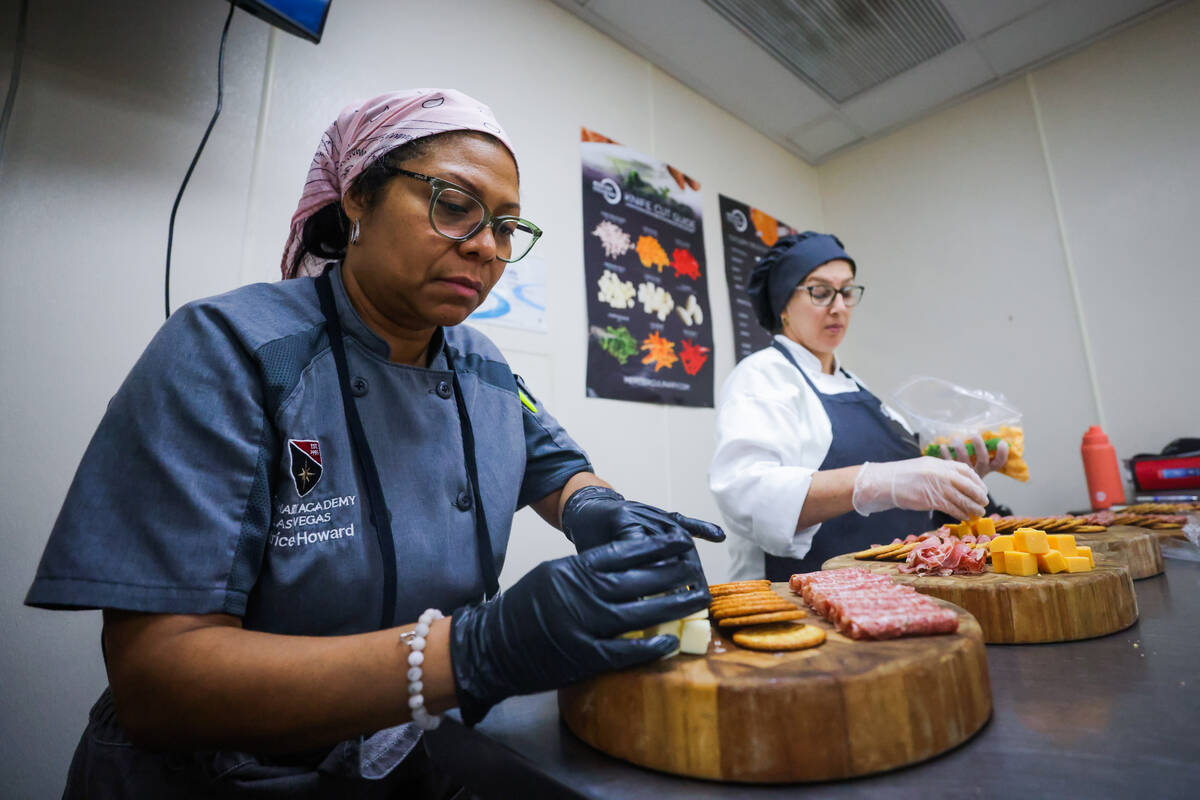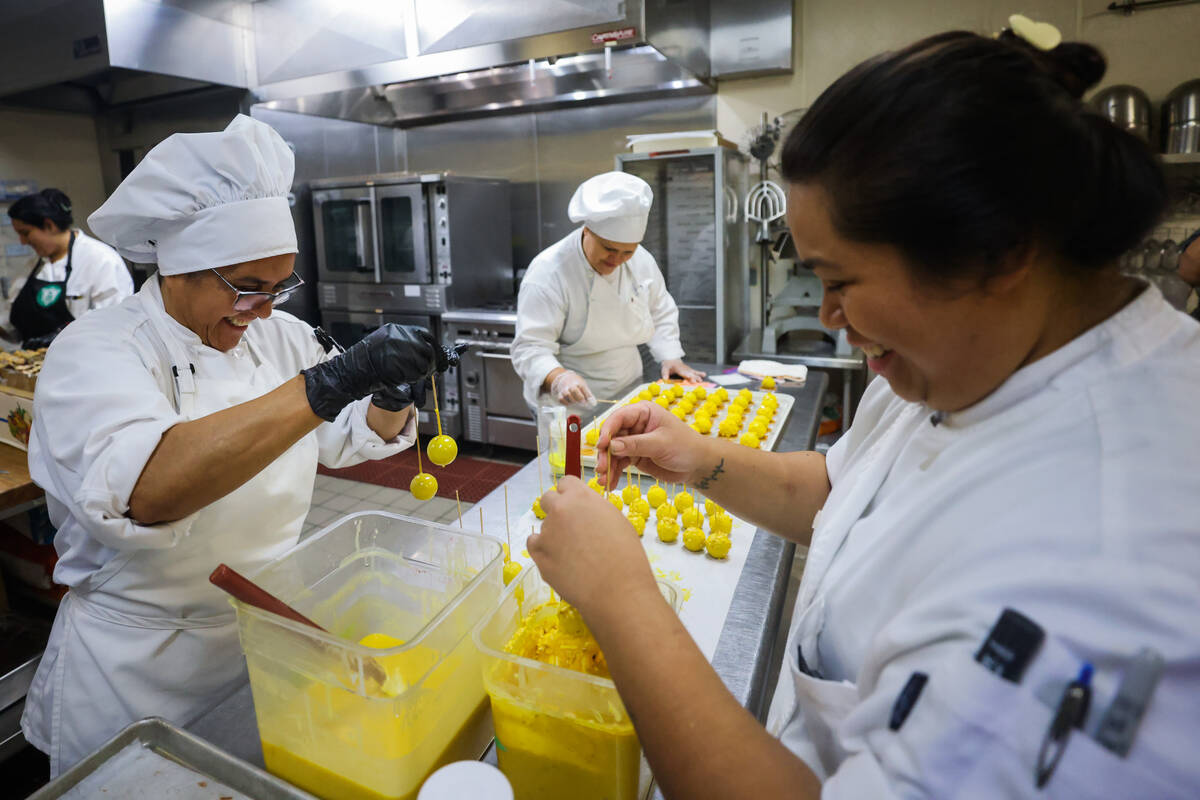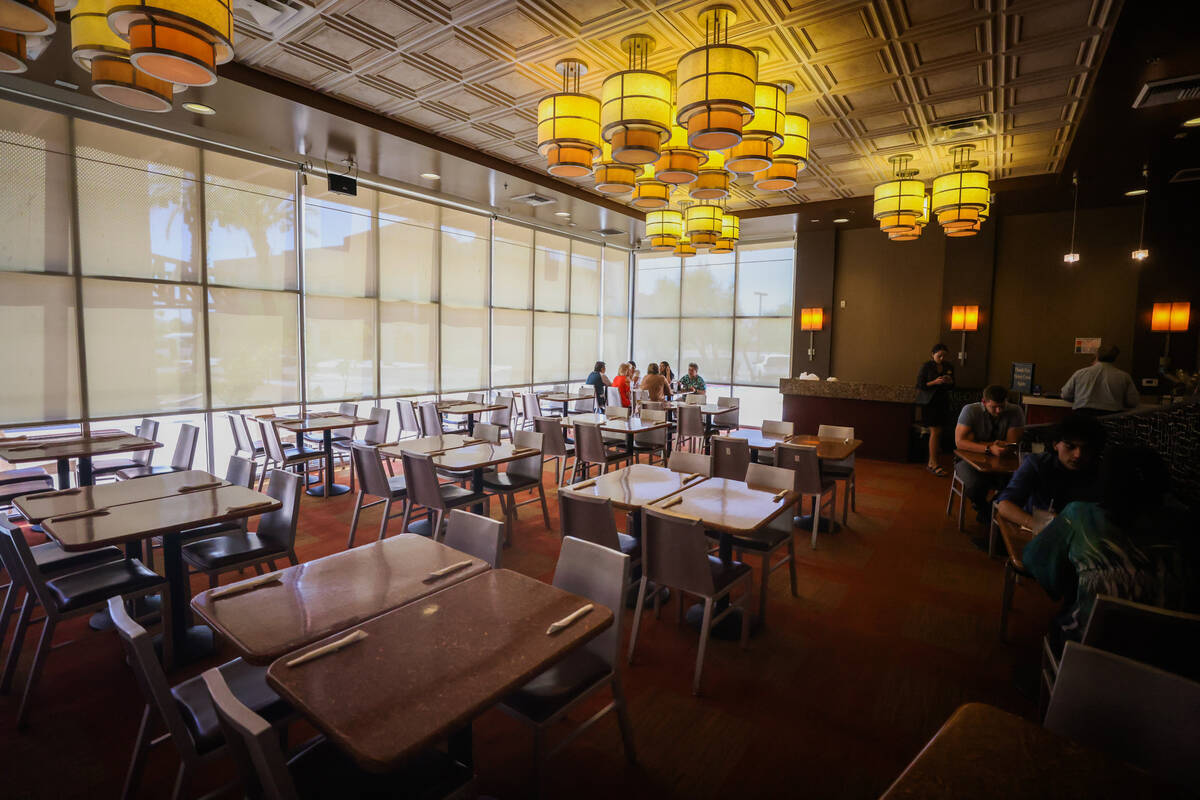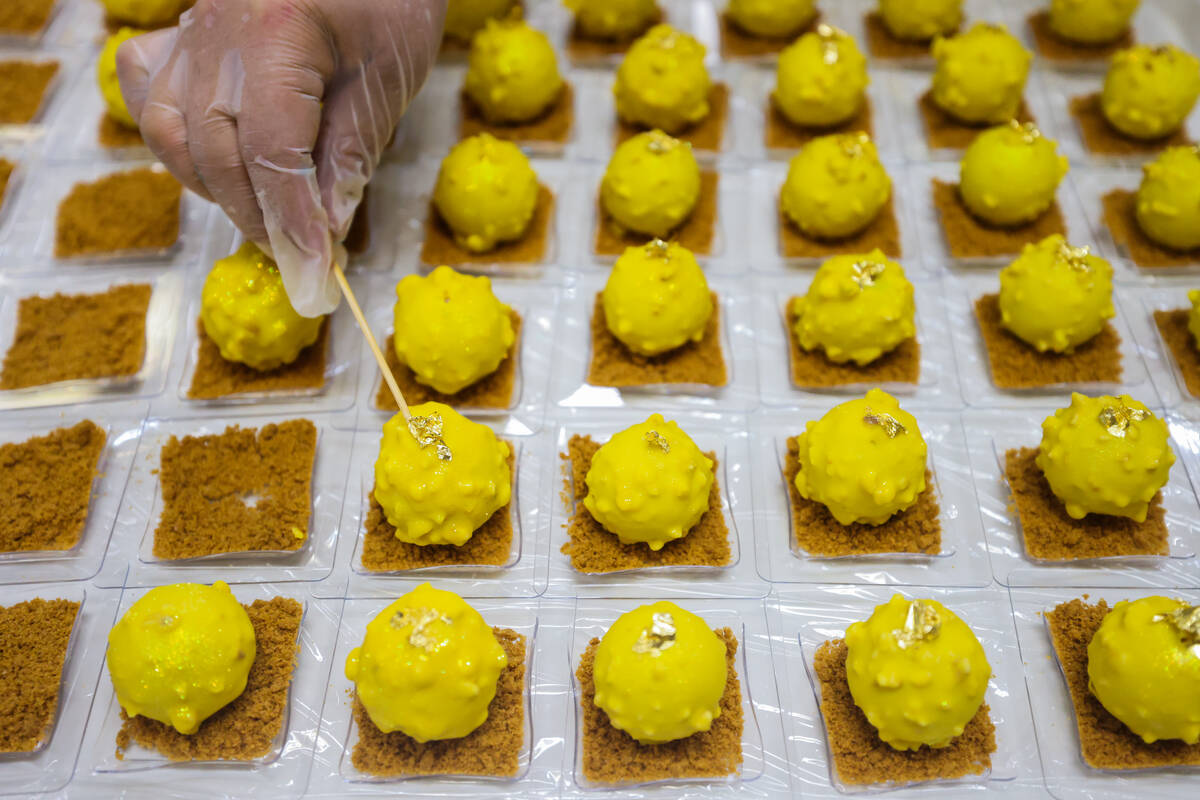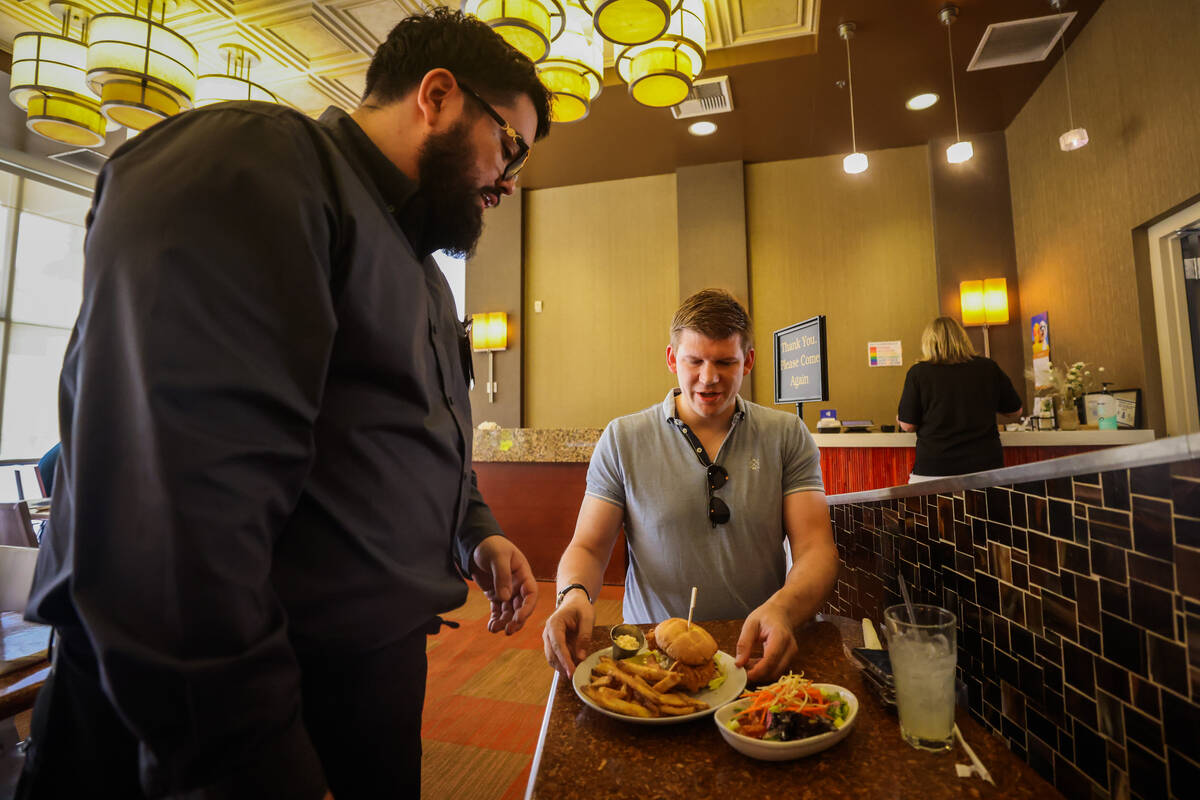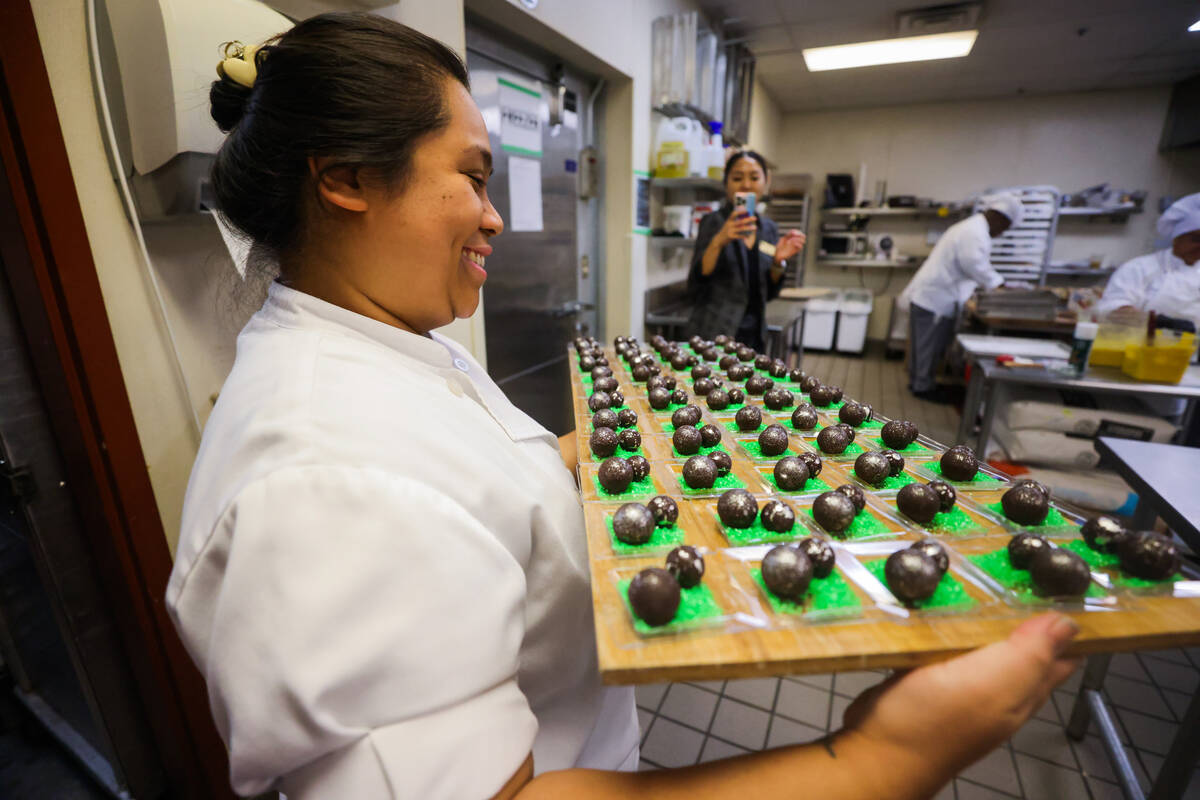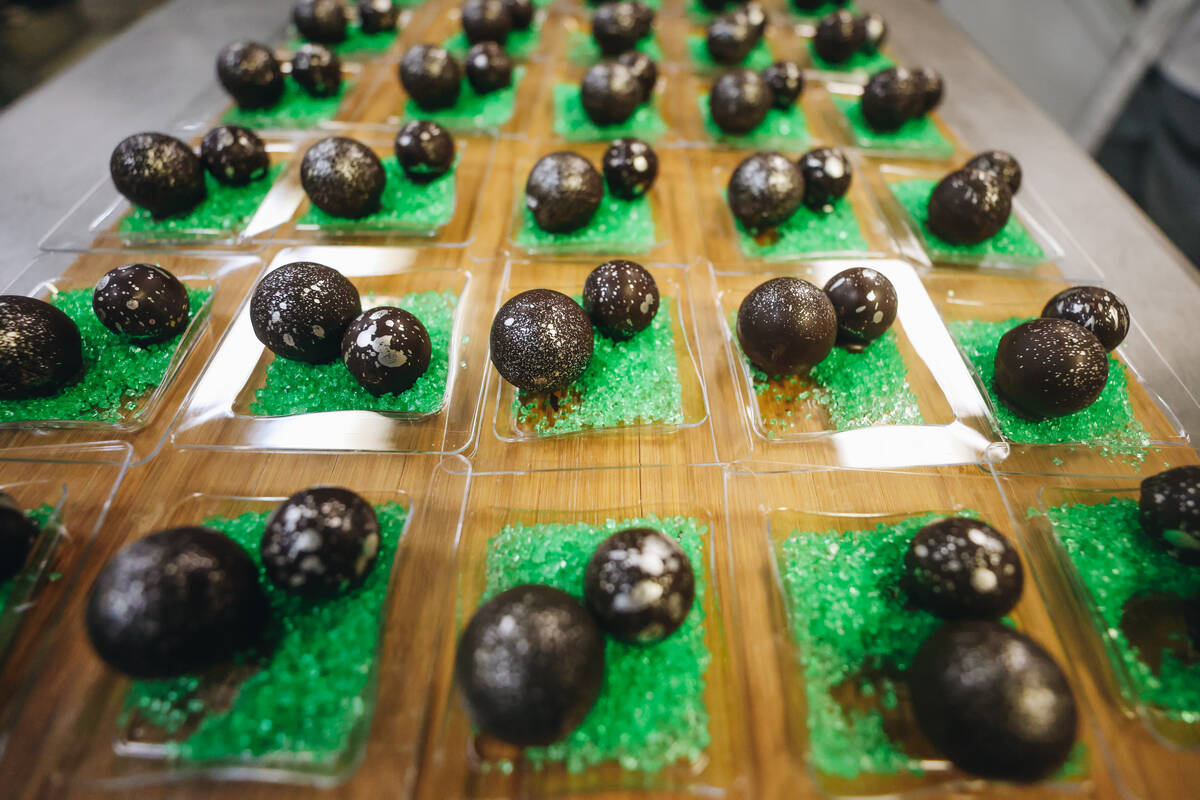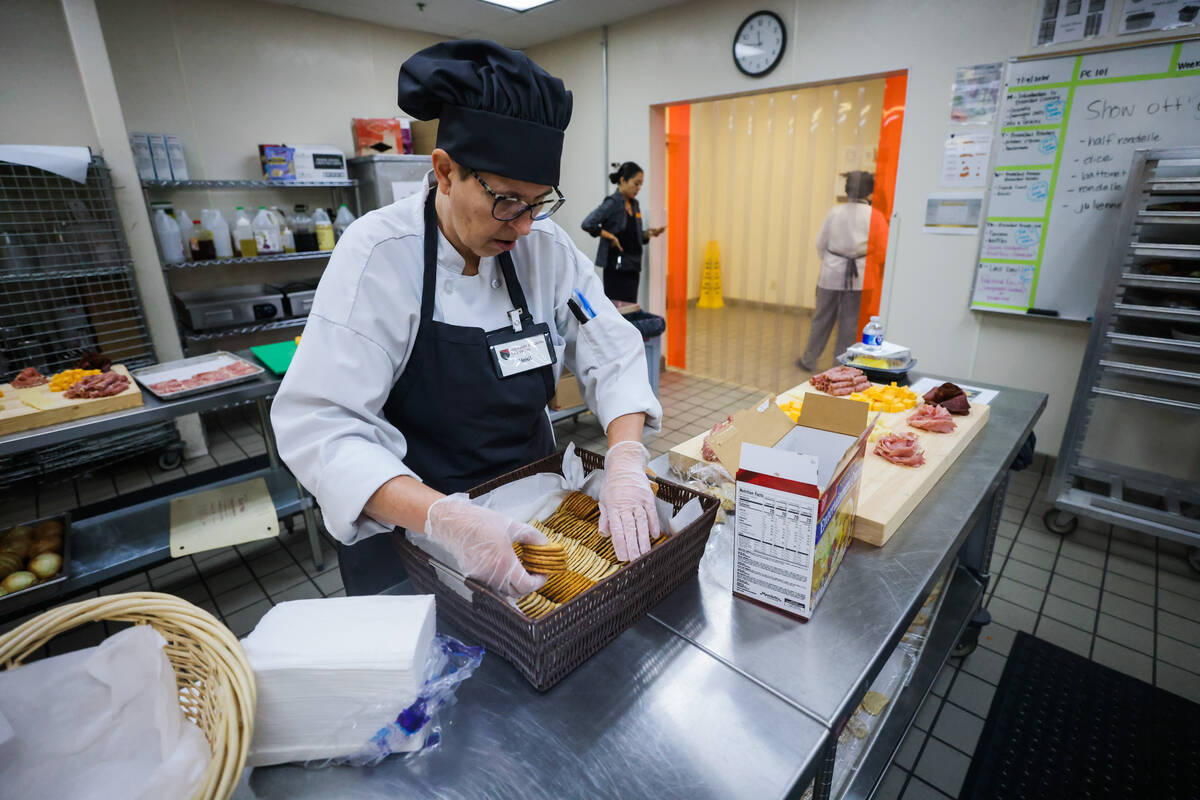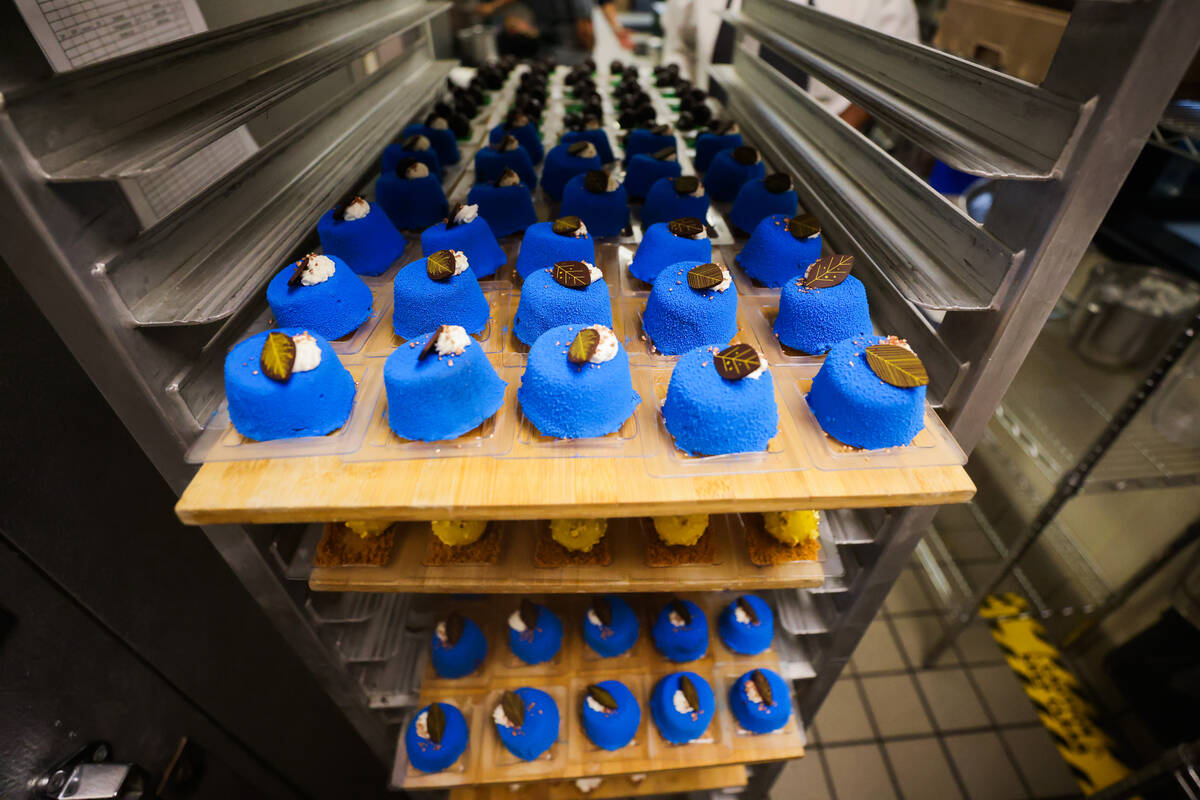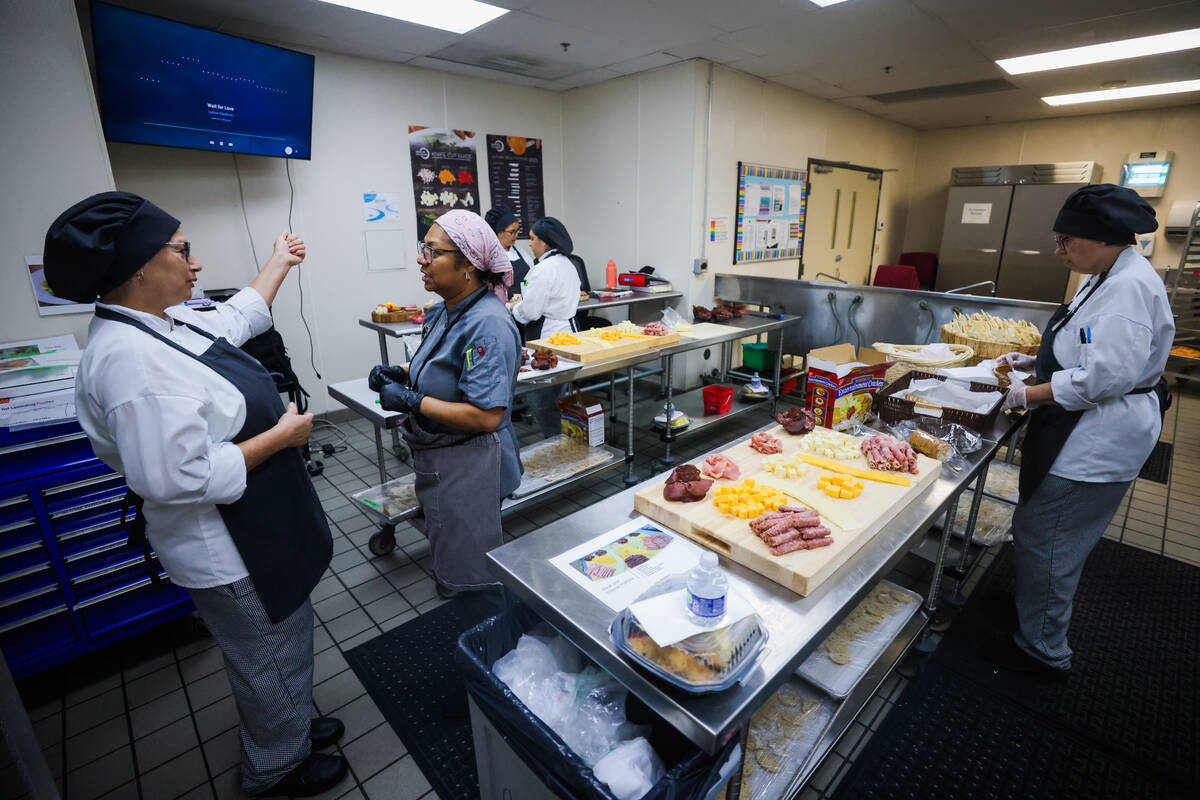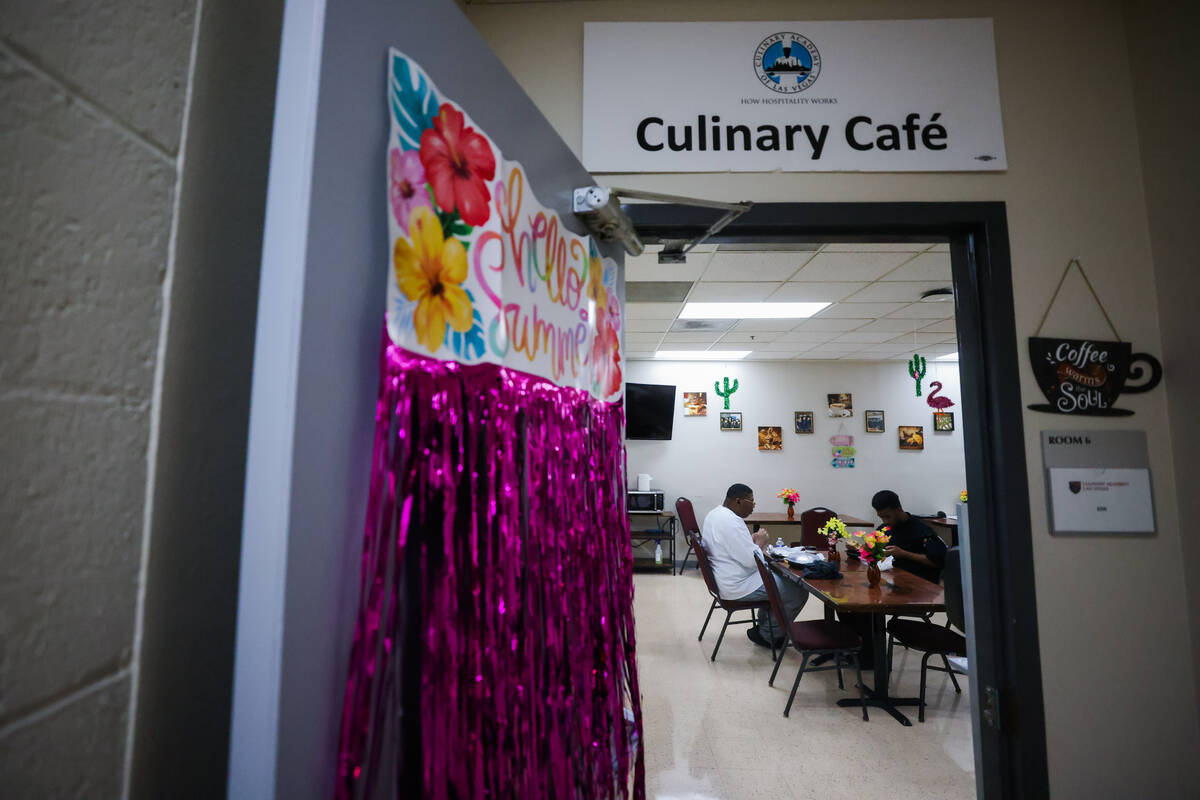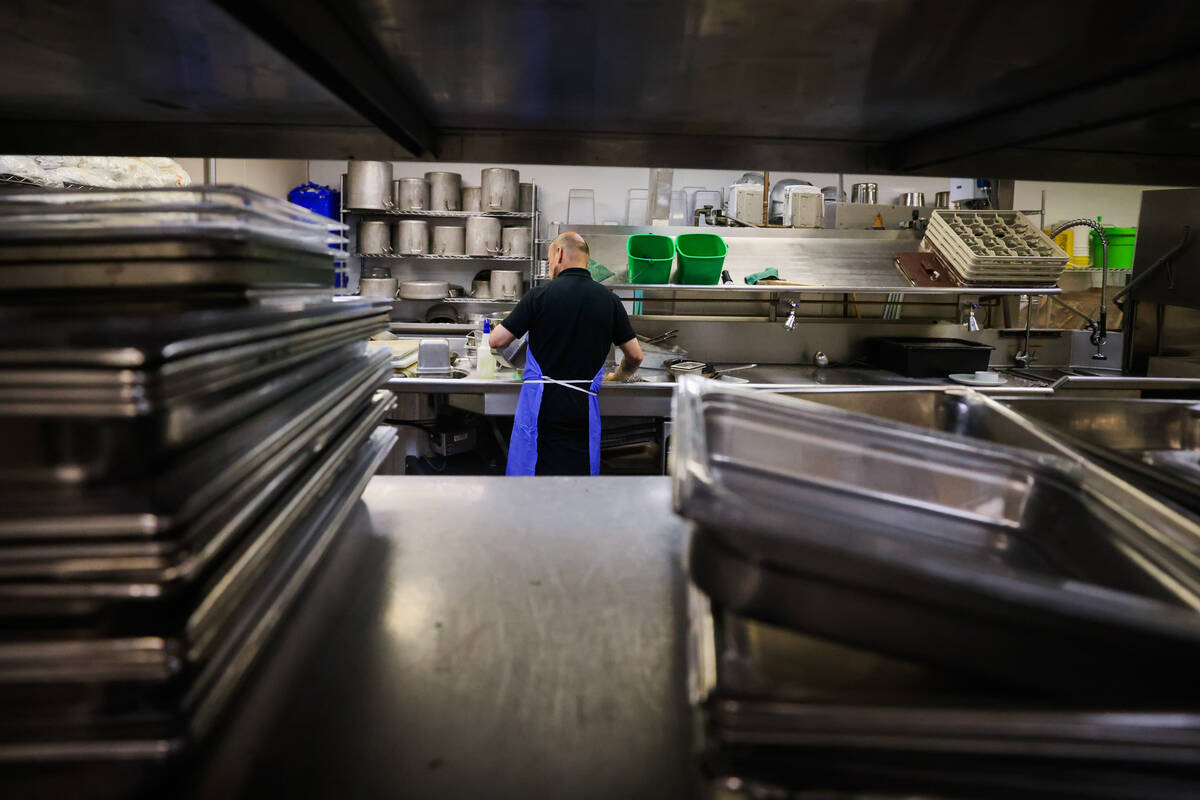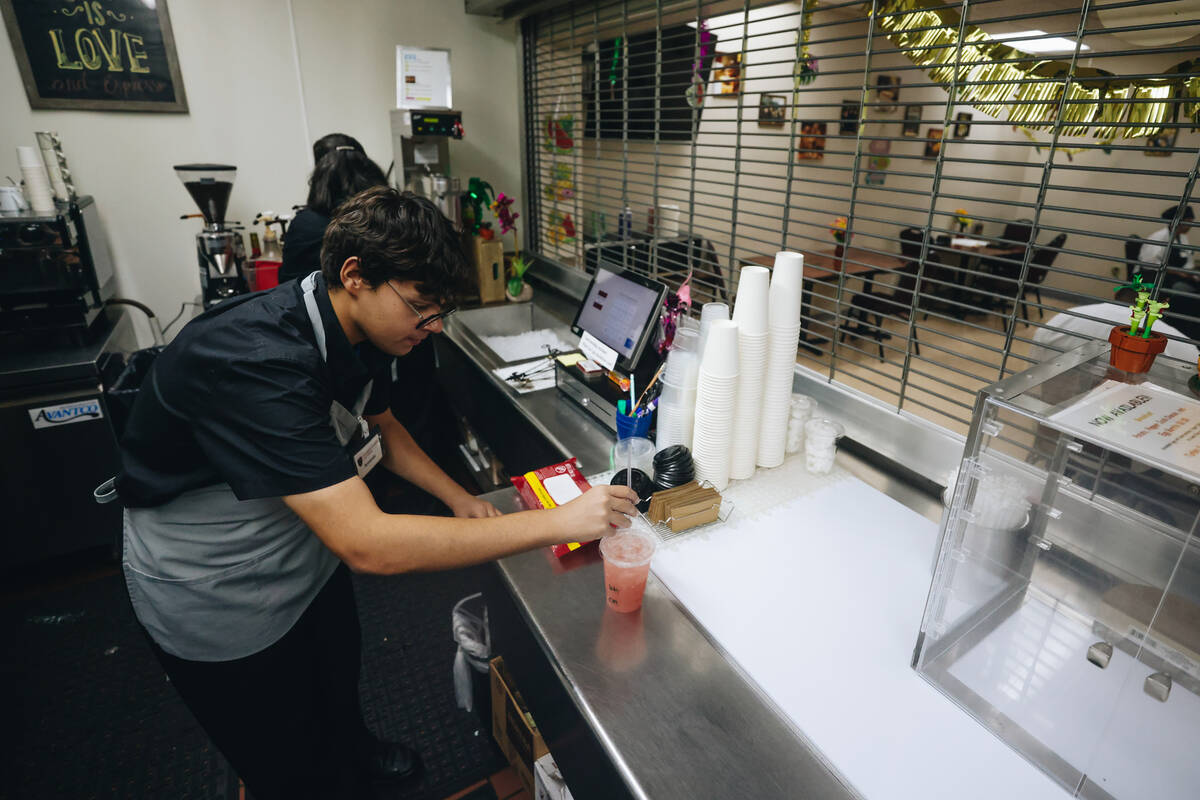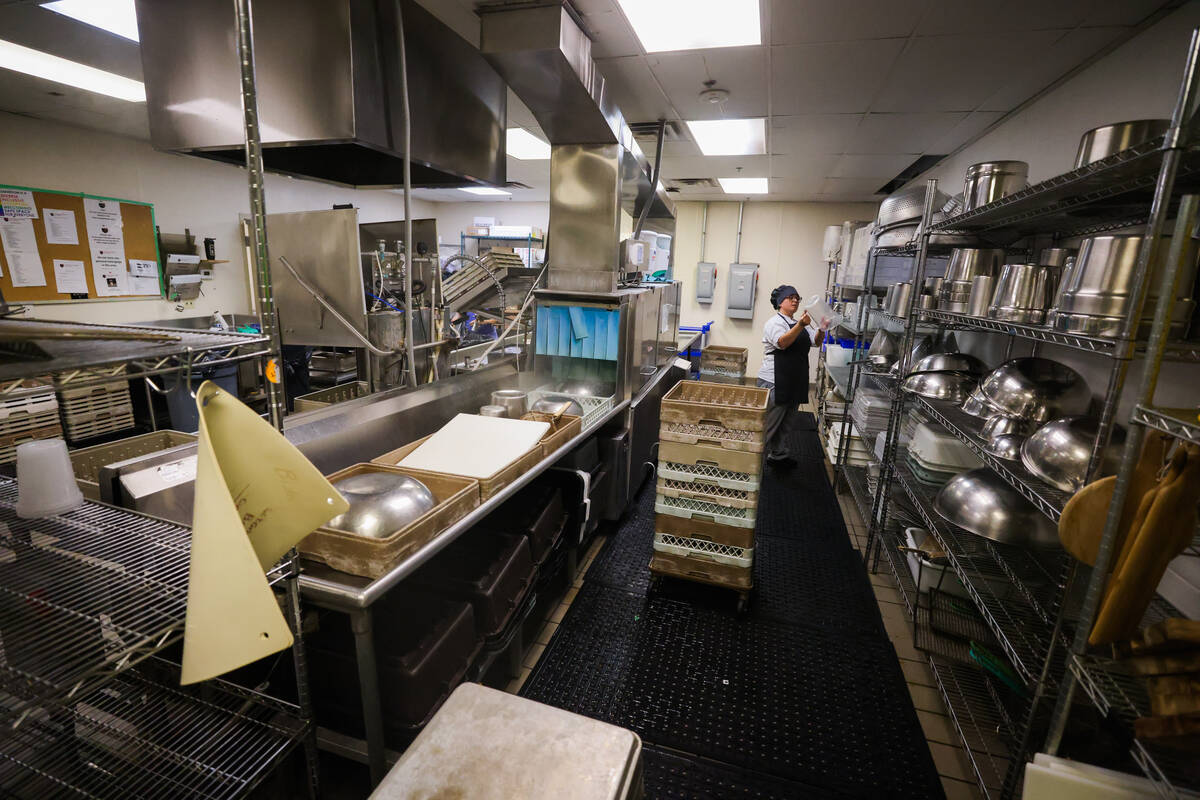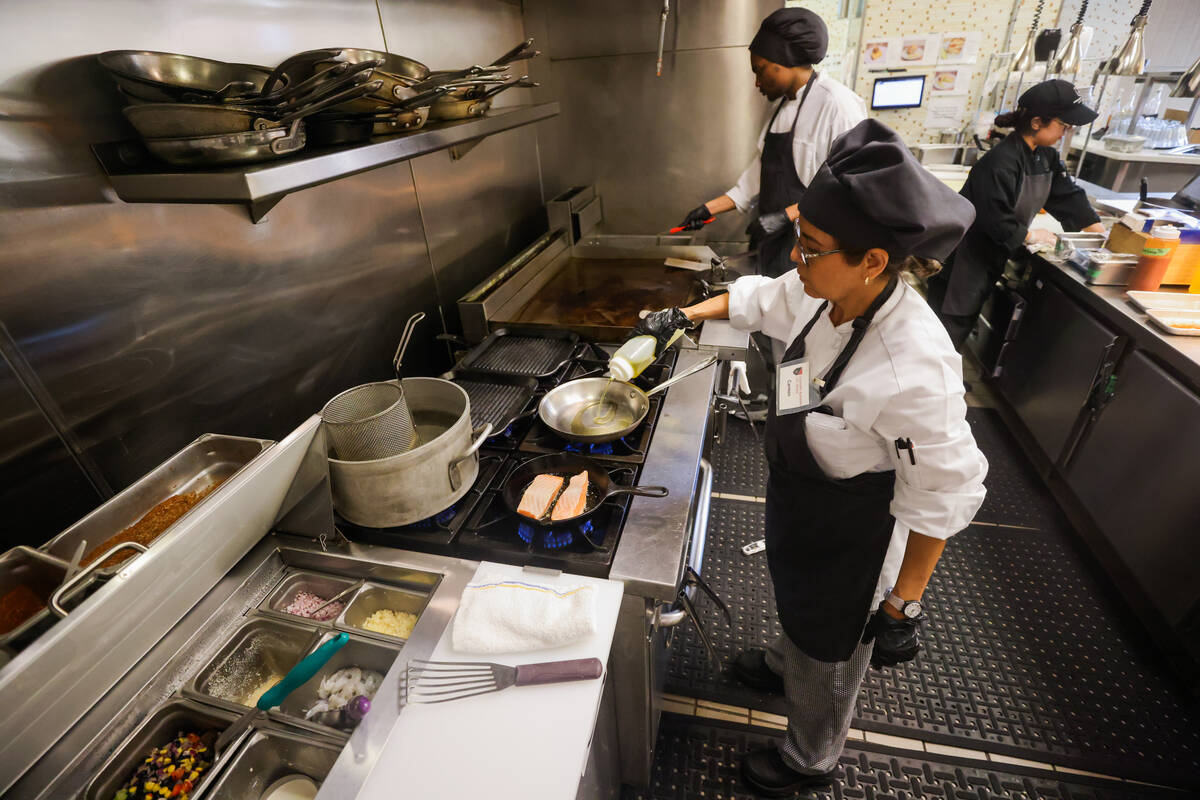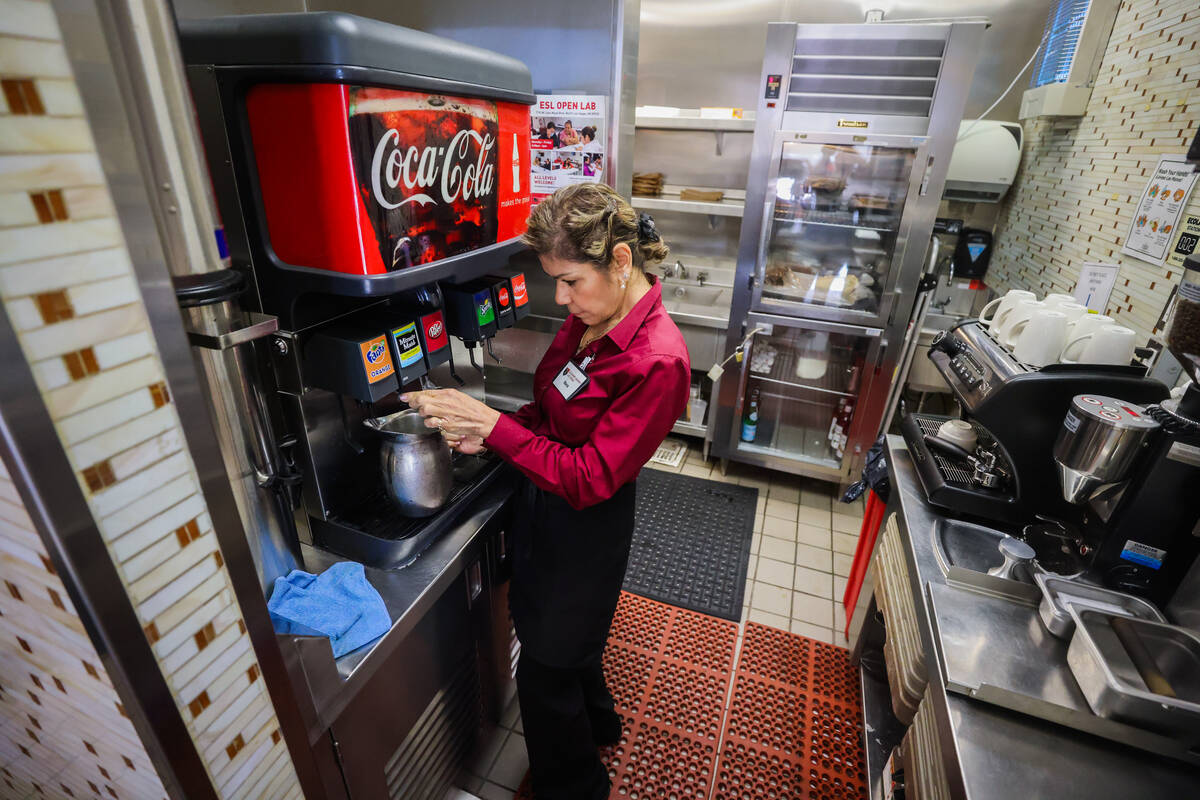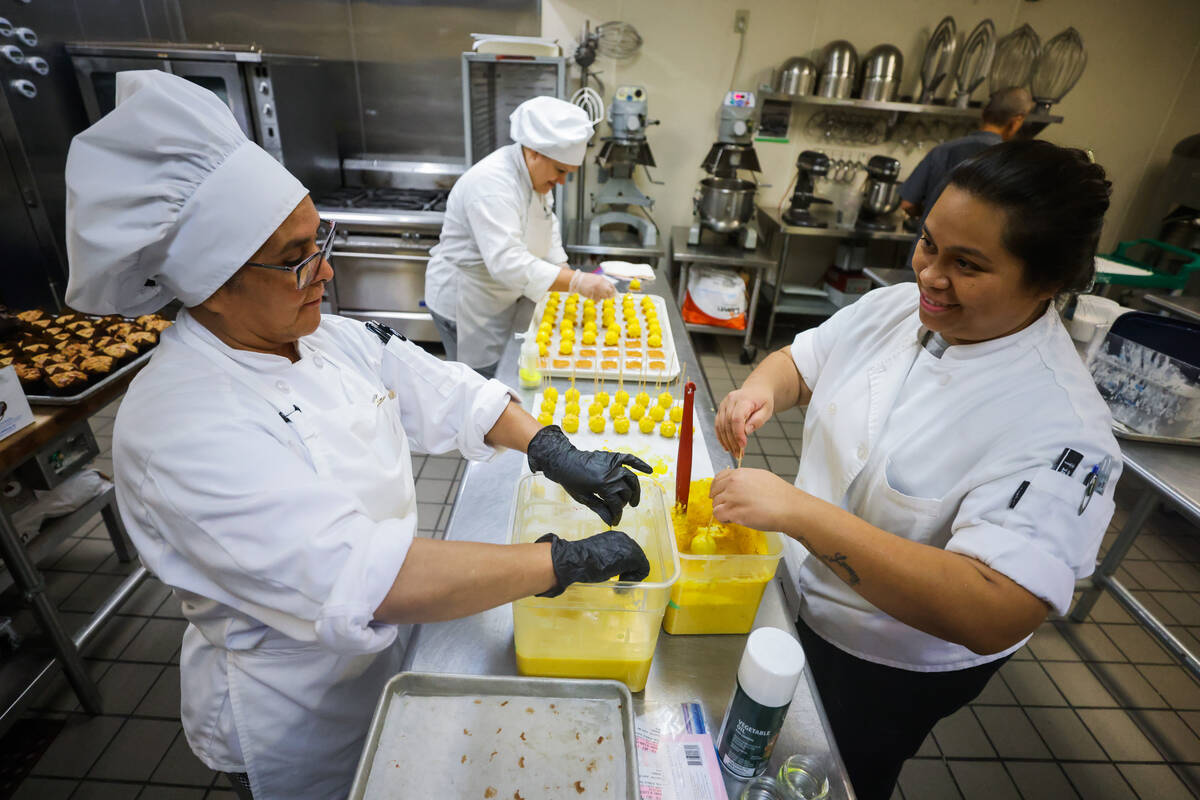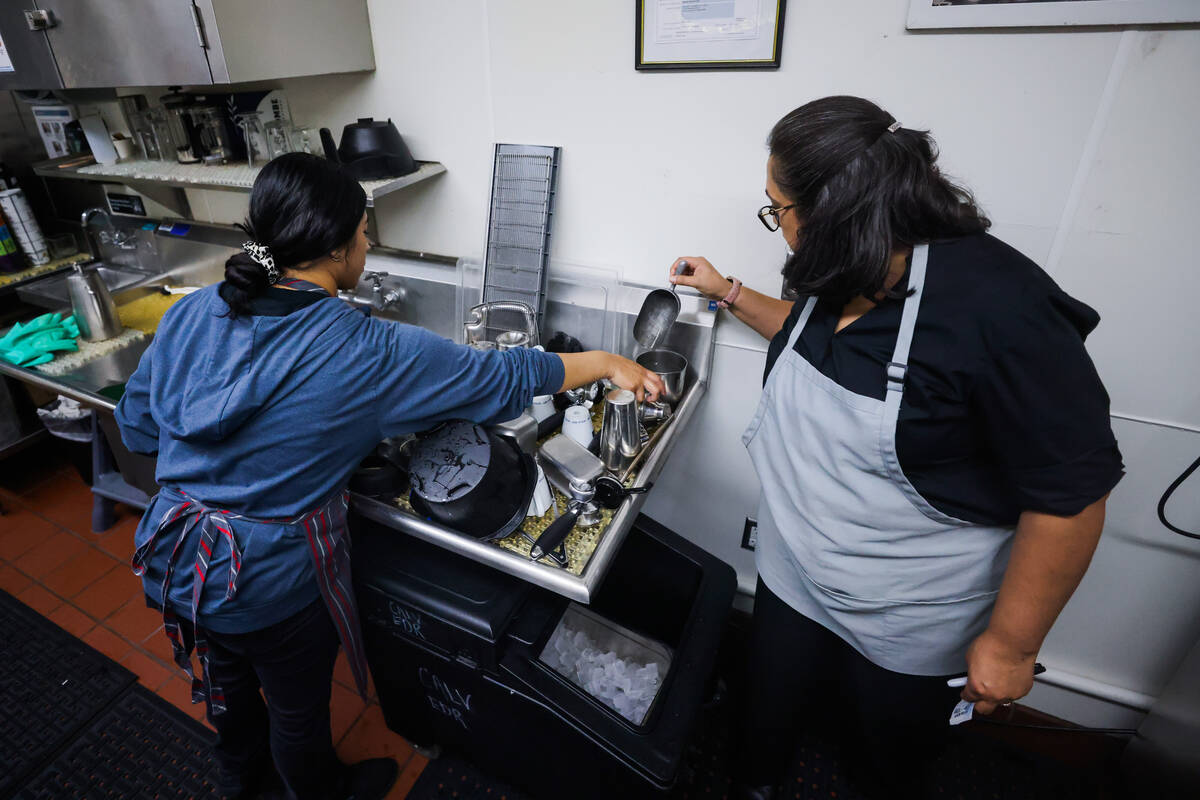What’s next for Mirage workers? For many, it’s back to school
Friends Enrique Baria and Arnold Domingo spent more than a decade mixing drinks at The Mirage’s Center Bar. But in recent weeks, they’ve found themselves in a new setting: an industrial kitchen.
It’s a change from their usual work space, but Baria and Domingo said the resort’s closure after 34 years came at the right time for them to consider different career paths.
“That’s the time when I decided, what can I do next? I decided I’m turning 60 this year,” said Baria, who began working at The Mirage in 1998. “I figured there’s not a lot of casinos hiring a 60-year-old bartender. There were a lot of options for us, so I decided I want to be a cook. Me and my friend decided we’re going to be useful around the house and get a job at the same time.”
The bartending pair are taking part in the Culinary Academy’s 13-week professional cook program at the training school’s Lake Mead Boulevard campus in North Las Vegas. As Culinary Local 226 and Bartenders Local 165 members, they’re taking the classes for free.
The hospitality school, a joint effort between labor and industry partners, connected laid-off union members at The Mirage with re-skill or up-skilling resources as part of the union and state’s rapid response efforts post-closure. Union members at The Mirage have six months to access the free services.
About the Culinary Academy
The classes are available to union hospitality workers because of a trust funded by the union and nearly 40 partnering hotel-casinos, which pay into the fund as part of their collective bargaining agreements.
Eligible Culinary members can sign up for the educational programs for free. Other community members can pay tuition, which ranges from several hundred dollars for programs with shorter calendars to almost $3,400 for the professional cook program.
But those outside of the program can find funding support through other nonprofits and government agencies like the Nevada Department of Employment, Training and Rehabilitation, Clark County and others, CEO Bobbi Damrow said.
The classes are part of the rapid response mobilization that union and state offices engage in when a major employer closes. The Culinary Academy will also train laid-off employees to the specifics required of new places — like the restaurant and bar Pinky’s by Vanderpump, which is expected to open later this year at the Flamingo.
“The Las Vegas industry wants to ensure the workforce ecosystem is strong,” Damrow said. “We have to make sure we’re ahead of that or alongside of it, at least.”
Damrow said the facility is unique because of the union-business partnership overseeing the trust. Hospitality industry representatives can help guide the training toward what they need in workers, while labor representatives make sure the resources are accessible for their members and underserved communities in Las Vegas.
The industry’s presence is noticeable at the Culinary Academy. Housekeeping students learn to clean a room in 30 minutes or less in one of three model rooms — styled after Wynn, MGM Grand and Caesars Palace rooms — while kitchen stewards, cooks and baker’s helpers can expect lessons in full-service kitchens. There are also classes focused on wine serving and sommelier certifications, a one-year cook apprenticeship program designed to train them up to sous chefs, digital literacy classes that show students how to apply for jobs online and more.
Cooking students put their work in front of hungry customers at an on-site restaurant, the Westside Bistro, while front-of-house programs practice their lessons in the bistro’s dining room. Cooking students eventually take their skills to another kitchen for the last three weeks of classes: 500 Grand Cafe, a lunch spot in the Clark County Government Center.
“This is a different training than others because they’re applying it in large volumes right away,” Joel Shaefer, the executive chef instructor, said.
Why students do it
For Domingo, he saw the class as a chance to explore something new. Though he’s two years from his intended retirement age, he loves to cook. He plans to take the course and then return to his home country of the Philippines for a year — maybe even start a restaurant — or return to Las Vegas to work in a resort kitchen.
Domingo said he looked forward to learning in a hands-on environment.
“I’m impressed because it really feels like you’re in a real restaurant,” Domingo said. “So far, all the instructors are very helpful.”
To Baria, the chance to learn something new was a no-brainer. Baria said full-time bartending gigs are tough competition on the Strip and often have grueling schedules. If he was going to start over, he could start in a kitchen with a steadier set of hours.
“When you become a bartender and apply for another gig on the Strip, you start out part time,” Baria said. “You work two days, three days — any hour like you’re on call. Being a cook, most of the time you work five days and you may be the rookie but you get five days.”
Contact McKenna Ross at mross@reviewjournal.com. Follow @mckenna_ross_ on X.



